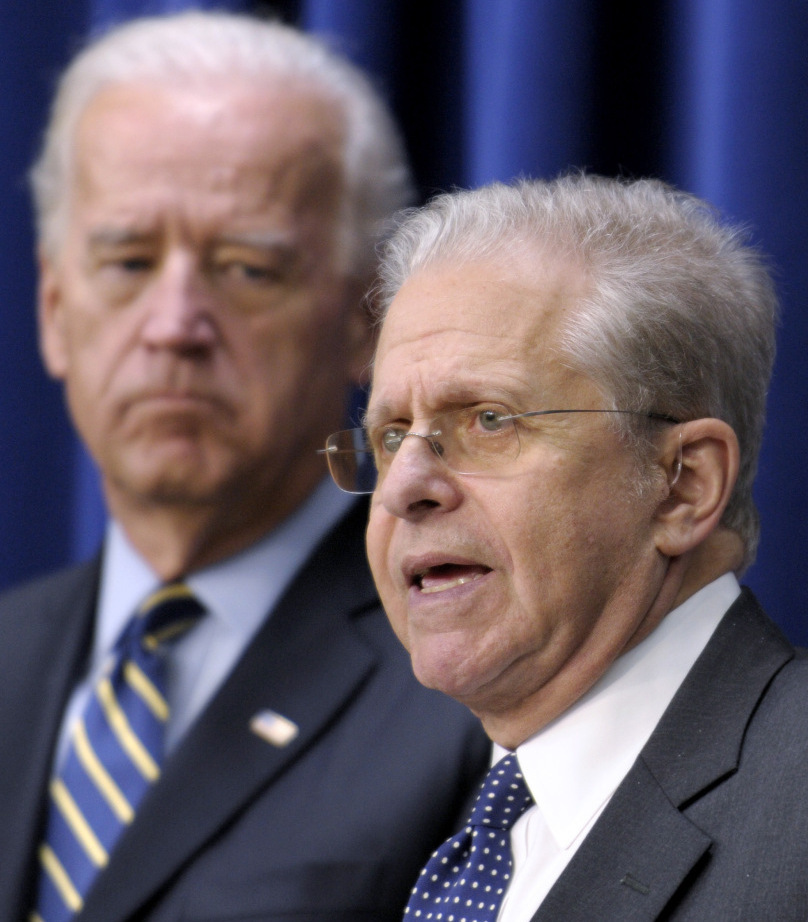 Laurence Tribe, the Harvard law professor who
argued the losing side of Bush v. Gore, is now defending the coal
industry against the Environmental Protection Agency’s planned rules for
greenhouse pollution from power plants. In a
submission to
the EPA’s comment period for the Clean Power
Plan,
Tribe and Peabody Energy’s notorious
climate-science-denying
lobbyist Fred Palmer argued that coal is a “bedrock” of the United
States economy.
Laurence Tribe, the Harvard law professor who
argued the losing side of Bush v. Gore, is now defending the coal
industry against the Environmental Protection Agency’s planned rules for
greenhouse pollution from power plants. In a
submission to
the EPA’s comment period for the Clean Power
Plan,
Tribe and Peabody Energy’s notorious
climate-science-denying
lobbyist Fred Palmer argued that coal is a “bedrock” of the United
States economy.
In short, coal has been a bedrock component of our economy and energy policy for decades. The Proposed Rule, which manifestly proceeds on the opposite premise, thus represents a dramatic change in directions from previous Democratic and Republican administrations.
“It is a remarkable example of executive overreach and an administrative agency’s assertion of power beyond its statutory authority,” Tribe and Peabody Energy wrote, in strident language reminiscent of Fox News rhetoric. “Indeed, the Proposed Rule raises serious constitutional questions.”
Tribe and Peabody put great weight in the past history of coal’s importance to the U.S. economy, as opposed to its future. Hillary Clinton, John F. Kennedy, and Jimmy Carter get special mention.
Both Democrats and Republicans should stand in strong support of the rule of law. And both Democratic and Republican Administrations have promoted the prudent use of domestic coal in order to reduce dependence on imported oil. In contrast, the Proposed Rule will require a dramatic decline in coal-fired generation of electricity, in order to implement EPA’s system of state-by-state mandates. In fact, under EPA’s plan, the agency envisions that coal generation would be eliminated altogether in 12 states. The Proposed Rule thus reverses policies that reach back to John F. Kennedy. As Hillary Clinton observed in 2007, “I think you have got to admit that coal — of which we have a great and abundant supply in America — is not going away.”
[The rule] retroactively abrogates the federal government’s policy of promoting coal as an energy source. Private companies – and whole communities – reasonably relied on the federal government’s commitment to the support of coal.
The Proposed Rule represents a reversal of decades of a bipartisan federal policy emphasizing increased use of domestic coal to achieve U.S. energy independence, reduce imported foreign oil, and provide the Nation with reliable and affordable electricity. As Hillary Clinton observed in 2007, “I think you have got to admit that coal — of which we have a great and abundant supply in America — is not going away.”
Both Democratic and Republican Administrations championed coal throughout the 20th century. John F. Kennedy explained, “It would be the height of folly for this nation to permit its coal mines to be abandoned – to permit the skills of our miners to be scattered throughout the country, in other industries – and to neglect further research and development in this major American industry. … We need intensive research on the development and use of our coal resources.”
Coal has been a central tenet of energy policy for every president since Jimmy Carter, who urged a “shift to plentiful coal” in order to reduce dependence on foreign oil. President Carter promised a certain and consistent policy to provide industry with the confidence necessary to make investments to move the U.S. toward energy independence.
Harvard Law School’s conflict-of-interest policy requires only that professors like Tribe disclose outside work to the Dean. Tribe’s public conflict of interest report discloses his work opposing the offshore wind project Cape Wind on behalf of fossil-fuel billionaire Bill Koch.
As Tribe fights in the pay of fossil-fuel polluters, seven Harvard students have filed a lawsuit against the University pushing it to divest from fossil-fuel investments.
The full submission can be read here.